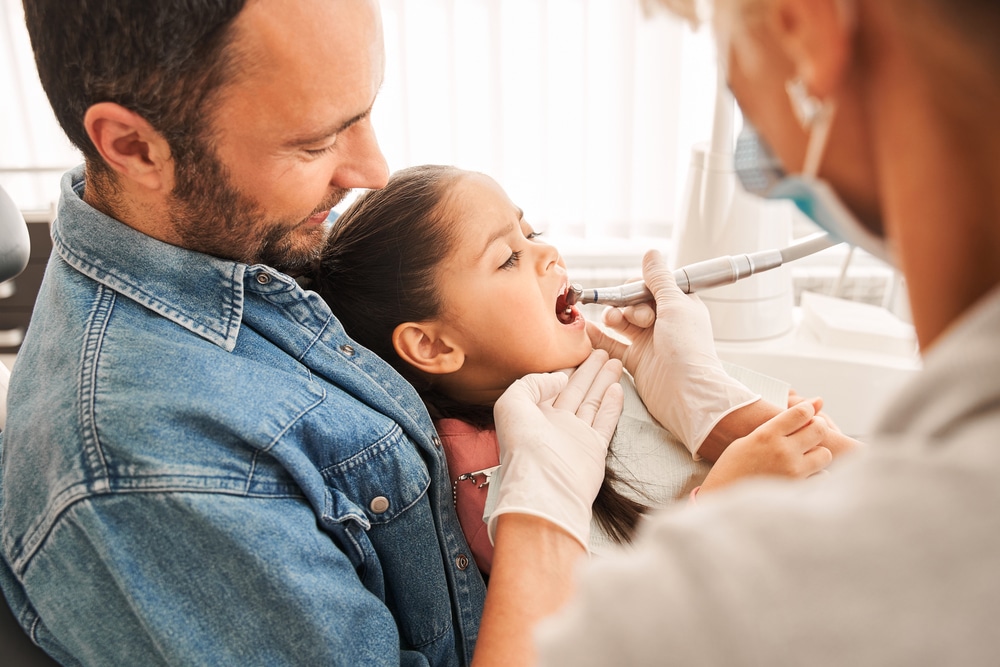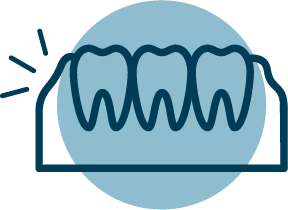Because every smile matters in Hattiesburg, MS
Pediatric Emergency Treatment

Baker & Graham
Overview
Regular dental care helps prevent dental emergencies, but nothing can stop the unexpected from happening. Here are some of the more common dental emergencies and what you can do until you can get to our office. If your child is in pain, DO NOT wait to make an appointment. We will be happy to see you as soon as possible. If this is an after-hours emergency, please call our emergency line.
Toothache
A toothache or sensitive tooth can be caused by several things, such as unseen cavities, cracks in the tooth, or nerve damage inside of the tooth. Contact us as soon as you notice the pain, as even slight pain left untreated can quickly progress into severe swelling and pain in the mouth and face. Over-the-counter pain relief medication can temporarily relieve the pain until your appointment. In-office treatment by your dentist will vary depending on the cause of the pain.
Bitten Tongue, Lip, etc.
If your child bites their tongue, lip, or cheek hard enough to cause bleeding, we suggest applying firm pressure to the affected area with a clean cloth or gauze to stop the bleeding. You can also apply ice to any bruised or sore areas. If bleeding persists for more than 15 minutes and cannot be controlled by simple pressure, take your child to the emergency room immediately.
Broken Teeth
Teeth can break at any time when met with enough force (people who play contact sports are especially at risk of this), but teeth with large fillings can also break extremely easily. If your tooth breaks, call your dentist immediately to have the tooth evaluated and restored. If the broken tooth is not treated, serious problems can develop.

Loss of Crown or Bridge
If your crown or bridge falls out, it is important to see your dentist as soon as possible to have it re-cement, if doing so is possible. Please do not attempt to perform this on your own with any over-the-counter products, as crowns or bridges that are not set properly can cause severe issues to themselves or surrounding teeth.

Teeth Knocked Out
If your child’s tooth is knocked out, call your dentist immediately and place the tooth (if you can find it) in water or a wet towel or cloth or a small container of milk or the patient’s salive. Do not scrub or wash the tooth or handle it by the root. The faster the tooth can be repositioned, the better the odds that the tooth can be saved. Time is crucial.

Swollen Gums
Swollen gums are a sign of gum disease and infection. Contact your dentist as soon as you notice the pain, as the underlying cause of the swelling, when untreated, can lead to loss of teeth, damage to the jawbone, and severe facial pain/swelling. To alleviate pain before your appointment, rinse your mouth with warm saltwater.

Lost Filling
If your filling falls out, remove it from your mouth right away so that you don’t accidentally swallow it or chew down on it. Call your dentist right away to get the filling replaced as soon as possible. In the meantime, keep your mouth clean and brush very gently. Rinse with warm saltwater or mouthwash. To prevent food particles and other bacteria from entering the tooth, avoid chewing on that side. You can also use dental wax to fill the void until your appointment.
